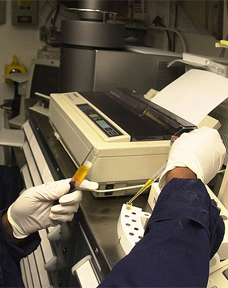Low Cholesterol Linked With Worse RCC Survival
Patients with renal cell carcinoma who had low preoperative levels of serum cholesterol were found to have worse survival, according to the results of a recent study.
RCC patients with low preoperative levels of serum cholesterol were found to have worse survival.

Patients with renal cell carcinoma who had low preoperative levels of serum cholesterol were found to have worse survival, according to the results of a study published today in BJU International.
Because cholesterol is a broadly available marker, researchers led by Tobias Klatte, MD, of the Comprehensive Cancer Center of the Medical University of Vienna, concluded that “its use may provide a meaningful adjunct in clinical practice.”
However, Klatte also added that this study was only hypothesis generating.
“If confirmed, patients with low cholesterol may be considered high-risk and may be treated or followed up more aggressively,” Klatte said in a press release.
The researchers retrospectively studied 867 patients with renal cell carcinoma taken from the prospective kidney cancer database at their institution. Preoperative total cholesterol levels were determined and cancer-specific survival was assessed in an attempt to validate cholesterol as a prognostic biomarker.
Patients in the study had a median serum cholesterol of 195 mg/dL.
The results showed that serum cholesterol decreased with increasing tumor stage (P < .001) and nuclear grade (P = .001). In addition, cholesterol levels were significantly lower in patients with lymph node metastases (P < .001), distant metastases (P < .001), and with histological tumor necrosis (P = .002).
Certain patient characteristics were significantly associated with lower levels of serum cholesterol, including male sex, diabetes, higher performance status, and certain tumor-related symptoms at the time of surgery.
In a univariable analysis, Klatte and colleagues found significant associations between serum cholesterol and cancer-specific survival (HR = 0.87; P < .001). According to the researchers, this indicated “that with each 10 mg/dL increase in cholesterol, the risk of death from renal cell carcinoma decreased by 13%.” Results remained significant upon multivariable analysis (HR = 0.93; P = .001).
Finally, the multivariable model found that patients with high cholesterol levels had a 43% reduced risk for dying from renal cell carcinoma (P = .005).
“We did not find a difference in cholesterol levels between the three major renal cell carcinoma subtypes. Further, cholesterol was similarly prognostic for both clear cell and papillary renal cell carcinoma,” the researchers wrote. “Data may therefore suggest that the observed effects may in part be patient- and not tumor-related, as the subtypes are commonly associated with stage and grade of disease.”